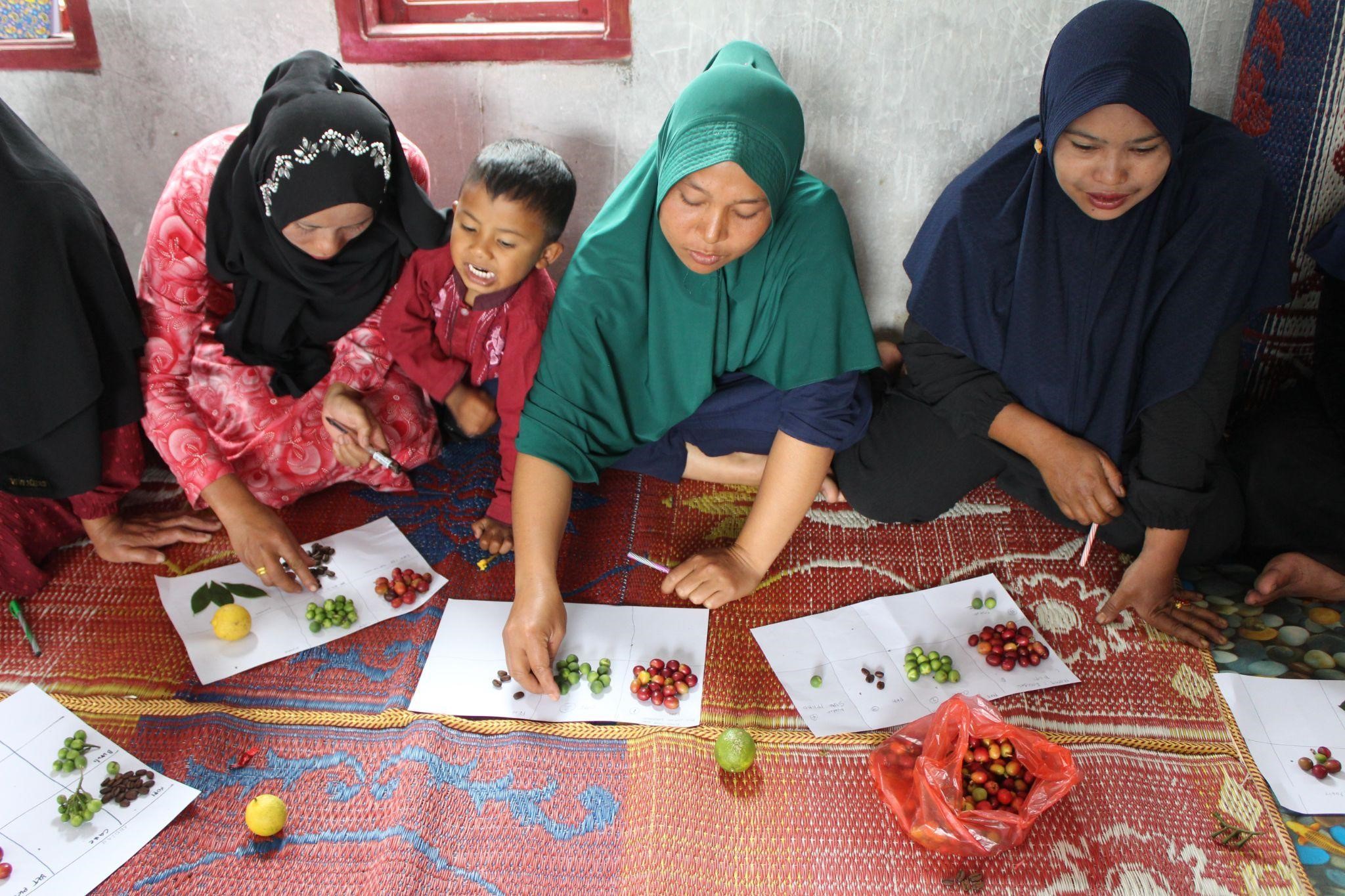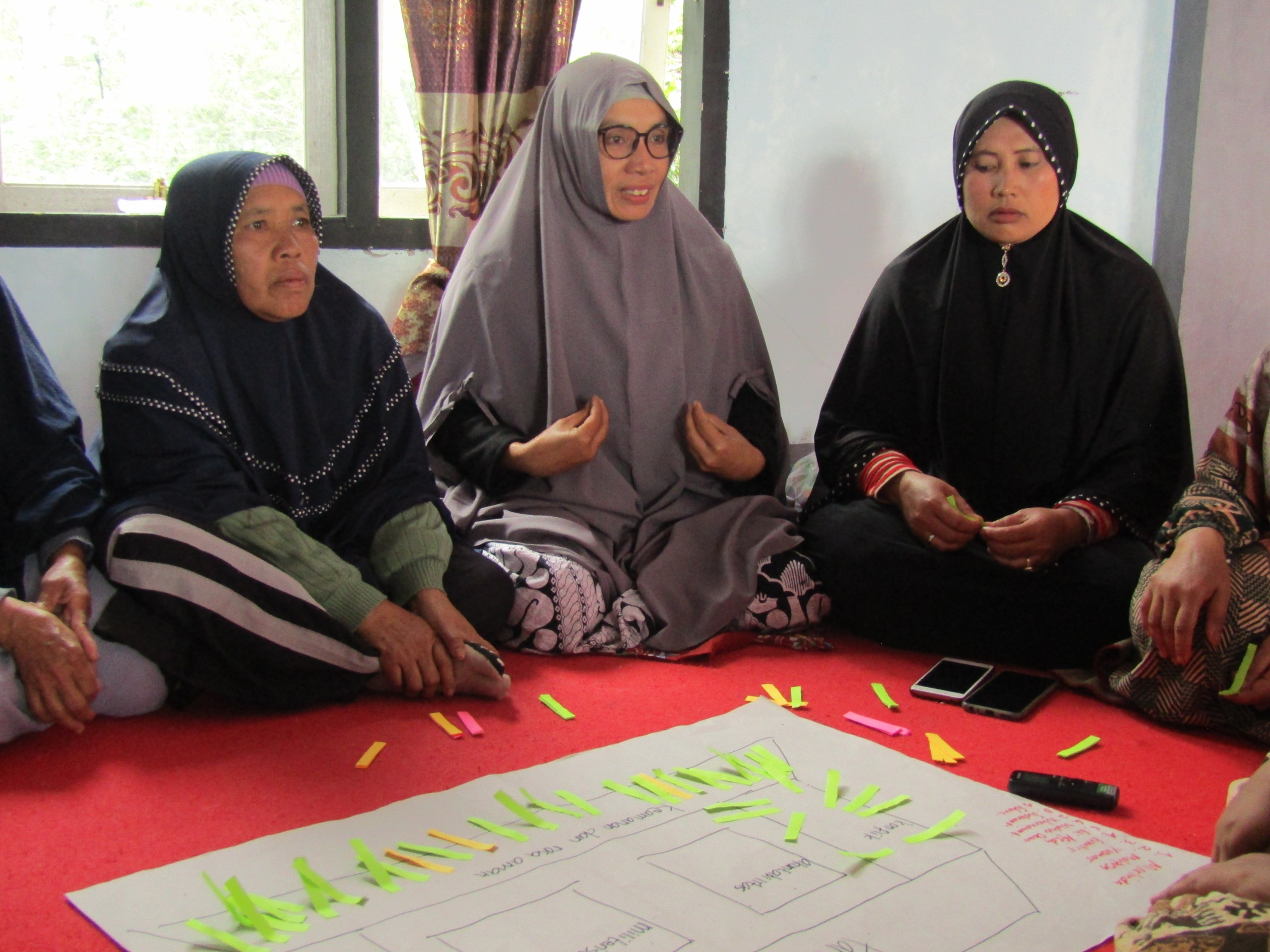
black cloth with the red and yellow Kerawang motives of the Gayo culture embraced both the former local GAM leader, Fauzan Azima, and Suterisno, the former head of Sedie Jadi. Prayer chants accompanied the powdering of flour on the men in the traditional tepung tawar rite, a feature of customary functions in Aceh.
After armed conflicts 20 years ago in the famed land of Gayo coffee, the gathering attended by local officials marked the first official reconciliation between villagers associated with GAM and the offspring of Javanese migrants earlier accused as “traitors” and spies of the Indonesian Military (TNI). Grudges had simmered even after the 2005 Helsinki peace agreement between the government and GAM.
Since around 2000 ethnic tensions had escalated in Bener Meriah among those of Javanese descent, the Acehnese and Gayo locals. On 5 June 2001 GAM fighters attacked Sedie Jadi village (then named Pondok Kresek), burning homes and shooting residents. The youngest of five victims was a two-year-old girl whose Javanese father had married a Gayo woman. Other neighbours had fled elsewhere, terrified of “sweeping” and assaults against the “Jawa”. Many joined militia groups trained by the TNI, who hunted Acehnese and Gayo villagers.
The formal reconciliation followed approaches to villagers and their leaders by KontraS Aceh and AJAR, who had held a series of PAR activities from 2022 to 2023. The locations were the above Sedie Jadi village and Pilar Jaya, a former GAM base, both in the Bukit district of Bener Meriah. All participants were victims of human rights violations, either by the TNI, GAM or militia.

In the workshops, participants gained some understanding of mutual suffering and similar needs of fellow villagers, who are mostly farmers, along with the context of the conflict. They used methods including the House of Peace and Memory Box, where participants shared their experiences through their mementos such as clothing and bullets.
With the facilitation of KontraS Aceh and AJAR, villagers continued their cross-community meetings following the formal reconciliation, knowing they could not depend on their leaders’ signing of a peace agreement. Since January 2024 three such meetings among 33 villagers including 15 women led to an agreement — to start joint coffee businesses.